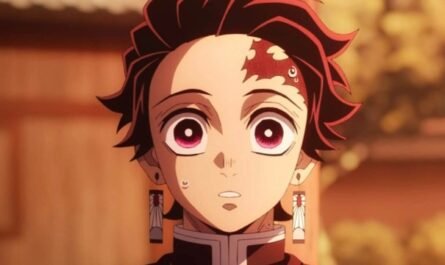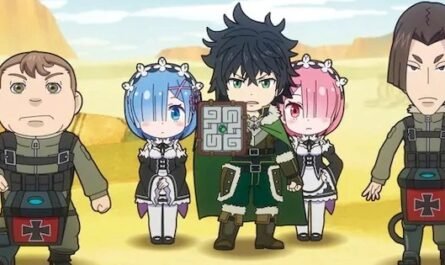Akira Takei’s “From the window of the adolescent outpatient.”
What kind of conflicts and troubles is swirling in children? Akira Takei, a psychiatrist who continues to be close to children living hard today, bridges the “generation gap.”
When adults face adolescents with mental problems, they tend to focus on their problem behaviors and symptoms. This is certainly necessary, but I think we should pay more attention to what children are interested in and what they value. I want to introduce a high school girl who made me feel strongly about this.
I can’t make friends, and I’m always alone during breaks.
Ayaka (pseudonym) grew up being scolded by her father and mother for being restless and unable to tidy up from an early age. In kindergarten, she was a child who often played alone without actively joining her friends. Ever since she was in kindergarten, her love for games has been influenced by her older brother. After she entered elementary school, she could not express her feelings and thoughts well, and it was difficult for her to make friends. As a result, she spends more and more time playing games at her home, and she often watches anime and manga. Even after she became a middle school student, Ayaka still can’t make friends with her. Therefore, she always read books alone during her breaks. And from the latter half of her second year of junior high school, she began to miss school occasionally.
Unable to go to school, adolescent outpatient visit After high school, Ayaka often missed school. So she visited her adolescent clinic in September of her first year of high school with her mom. Ayaka showed me a note on her smartphone during her consultation because she couldn’t speak well. She described various physical symptoms such as headache, abdominal pain, dizziness, nausea, heart palpitations, and her feelings of depression in her lengthy post. She had her mother accompany her to the hospital once every two weeks.
At her subsequent visits, Ayaka showed her doctor a note on her smartphone. She could not attend school, and her physical symptoms and depression continued. It’s been two months since she started visiting the hospital. Around this time, Ayaka began to write notes on her smartphone about her symptoms and worries. “I’m not good enough. I can’t do the same thing as everyone else. I can’t study or exercise. I can’t talk well with people. I don’t have anything to talk about. I don’t deserve to live like this. I can die anytime.” Her doctor listened to her feelings and devoted herself to supporting her.
He transferred to a correspondence high school Anime and games became a hot topic with his doctor.
After that, three months passed, but I couldn’t go to school every day, and my homeroom teacher told me that it would be difficult for me to advance to the next grade, so I decided to transfer to a correspondence high school. After her transfer, Ayaka-san could attend school due to the small number of her students and fewer school days. At her house, she continues to play games and watch anime. Six months have passed since she started going to the hospital. By this time, Ayaka began communicating with her doctor in spoken language in her office instead of showing her notes on her smartphone. “I’m obsessed with the anime that airs late at night.
The characters that appear are fantastic, and the lines in the anime encourage me. I also love music games. Doctor, do you know about music games? It’s a game where you tap your smartphone’s screen in time with the music or rhythm to score points. I’ll show it to you in the examination room.” He showed me 46 sound games. The attending physician interacted with Ms. Ayaka, saying, “That’s right,” “That’s amazing,” and “I didn’t know that.” Such examinations were repeated after that. One day, one year after her first visit to the hospital, Ayaka said, “Lately, we’ve only talked about anime and games in the doctor’s office. I was. Her doctor said, “Of course, that’s fine. Please continue telling me about anime and games I don’t understand.” After that, Ayaka graduated from a correspondence high school and entered a vocational school.
Involve children through their healthy parts
Many children who visit the adolescent outpatient clinic complain of physical symptoms and worries in the examination room for a while after they start going to the hospital. In response, the attending physician takes their feelings seriously and supports, comforts, and encourages them. While having such exchanges, the topics they talk about in the examination room will naturally change.
Instead of talking about symptoms and worries, we will move on to the things and hobbies that interest me the most. Today’s children mostly talk about games, anime, and videos, and TV programs that were popular a decade ago are rarely discussed. In response to their stories, the attending physician does not give any advice but instead says things like, “That’s right,” “That’s amazing,” and “I didn’t know that.” I will ask you While continuing such examinations, and children will find their place in school and society.
Activates healthy areas and overwhelms worries and anxieties
I feel that the reasons why the topics discussed in the examination room change are not only related to the fact that the children’s mental symptoms have been alleviated or their worries have been resolved. By repeatedly discussing topics of interest in the examination room, the healthy part of the mind is gradually activated, overwhelming the concerns and anxieties that previously dominated the reason the healthy part occupies.
This is an indication that the proportion has increased. It can be said that being interested in something is a function of a healthy mind. When listening to children with mental problems, adults tend to focus on the sick side of the children. At first, it may be unavoidable. But when you think about it, not all children’s minds are sick.
There is always a healthy part of the mind. Therefore, when dealing with children, we must not forget how to expand the area of their healthy minds. You should be able to find hints to overcome the worries and difficulties that children have by getting involved through the healthy part of their hearts. It may be possible to say that searching for it together is an essential role for adults involved with children. In the recent psychiatric and psychological fields, “XX therapy” is viral, but it is only for the pathological mind. Therefore, I want to pay more attention to the healthy hearts of children.
Born in Kutchan, Hokkaido in 1960. He graduated from Asahikawa Medical University Graduate School. he is a psychiatrist. He is the head of the Department of Psychiatry and Neurology at Municipal Asahikawa Hospital. He has been in charge of outpatient puberty for many years. In 2009, he received the Hayao Kawai Award from the Japanese Society of Sandplay Therapy. His publications include “Children’s Bimyo Honin” and “Bimyo Children’s Psychiatric Adolescent Outpatient Clinic” (both published by Nippon Hyoronsha).











